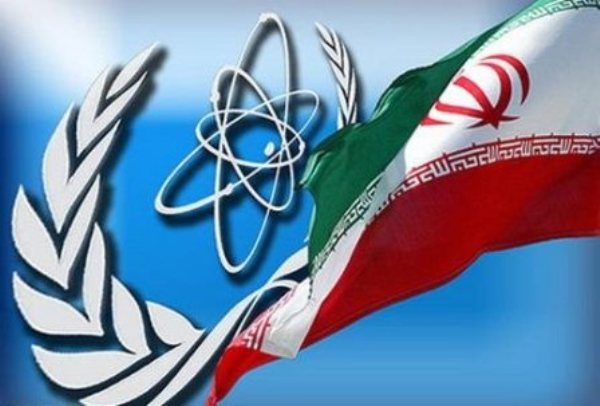
Europe, Russia, China worried about US action on Iran nuclear deal

The EU’s foreign policy chief, Federica Mogherini, said Iran’s compliance with the nuclear accord had been verified on at least eight separate occasions.
It is time to "invest in international cooperation” and "open new channels and not destroy the ones we already have,” she said by video conference.
It is "certainly not the time to dismantle them.”
The comments came as US President Donald Trump has said Tehran was not living up to the "spirit" of the agreement.
Trump is a fierce critic of the accord, which he has called an "embarrassment” and "the worst deal ever negotiated.” He is to unveil his strategy on Iran next week and is expected to decertify the landmark international deal in a step that potentially could cause the accord to unravel.
If Trump declines to certify Iran’s compliance, US congressional leaders would have 60 days to decide whether to re-impose sanctions on Tehran suspended under the agreement.
The prospect that Washington could renege on the pact, which was signed by the United States, Britain, France, Germany, Russia, China, the European Union and Iran, has worried some US allies.
IAEA confirms Iran’s commitment
The UN atomic agency chief on Monday reaffirmed Iran's commitment to the nuclear deal.
"I can state that the nuclear-related commitments undertaken by Iran under the [nuclear agreement] are being implemented,” International Atomic Energy Agency Chief Yukiya Amano said in prepared remarks during a conference in Rome.
An IAEA report released last month had also affirmed Iran’s compliance with the program.
Germany also said it was concerned that US President Donald Trump will say the international deal on Iran’s nuclear program is not being adhered to.
Foreign Minister Sigmar Gabriel told reporters in Berlin on Monday that "we do not want to see this agreement damaged.”
On Sunday, Gabriel accused the US administration of "replacing the rule of law with the law of the strongest.”
"That is a great danger for us because if the United States of America takes that course, then the world will change,” he said.
Russia and China took similar stances on the issue. Kremlin spokesman Dmitry Peskov said on Monday the United States’ possible withdrawal from the nuclear deal with Iran would have "negative consequences.”
China also said on Monday that it hopes the deal will stay intact, playing an important role in keeping the peace.
Speaking in Beijing, Chinese Foreign Ministry Spokeswoman Hua Chunying said the Iran nuclear deal was a good example of how to solve something peacefully through talks.
The agreement had played a positive and important role in ensuring nuclear non-proliferation and protecting peace and stability in the Middle East, she added.
"We hope that the comprehensive Iran nuclear agreement can continue to be earnestly implemented,” Hua told a daily news briefing.
Iranian authorities have repeatedly said Tehran would not be the first to violate the accord, under which Iran agreed to restrict its nuclear program in return for the lifting of most international sanctions that had crippled its economy.
France warns of aggravating tensions
France said on Monday it was worried that designating Iran’s Islamic Revolution Guards Corps (IRGC) as a terrorist group could aggravate tensions in the region, and appeared to urge Tehran to show restraint.
"In the context of regional instability, France is vigilant on any actions that could exacerbate the current crises,” Foreign Ministry spokeswoman, Agnes Romatet-Espagne, told a daily briefing, when asked if Paris backed putting the IRGC on a terrorist list.
"With this in mind, regional states have a specific role to play and must show restraint and a sense of responsibility,” she said.
Source:newsnow















